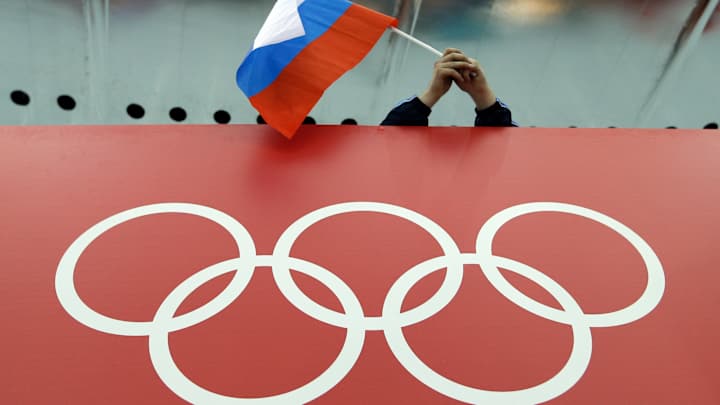Doping summit to tackle further measures ahead of Rio Games

LAUSANNE, Switzerland (AP) With a ban on Russia's track and field athletes already in place, Olympic leaders are looking at further anti-doping measures ahead of the Rio de Janeiro Games.
The status of other sports in Russia, as well as other countries and sports with poor doping records, could come under scrutiny at an Olympic summit in Lausanne on Tuesday.
The sports leaders are also expected to discuss guidelines for the process, approved by the IAAF, which would allow a small group of Russian athletes who live and undergo rigorous drug-testing outside the country to apply to compete as ''neutral'' athletes in Rio without any Russian flag.
The meeting comes four days after track and field's world governing body upheld the ban, first imposed in November, on Russia's track and field team for a ''systematic and deeply-rooted culture of doping.''
The International Olympic Committee said Saturday it ''fully respects'' the decision and acknowledged that the IAAF has control over the eligibility of track and field athletes for the games.
The statement appeared to rule out any chance of the IOC intervening to overturn or water down the decision or somehow give the Russians another route into the games.
The IOC went even further, saying it would undertake ''further far-reaching measures in order to ensure a level playing field for all the athletes'' competing in Rio. It said the meeting would discuss the situation of countries that are not in compliance with the World Anti-Doping Agency's global rules.
In addition to Russia, Kenya - home to many of the world's top distance runners - and Spain are currently deemed non-compliant by WADA. Kenya has been hit by dozens of positive drug cases in recent years and has struggled to set up a credible anti-doping system.
The doping crisis extends beyond Russia's track and field athletes and beyond Russia itself. WADA President Craig Reedie said Monday that the agency has started investigating allegations of doping by the Russian and Chinese swimming teams.
The entire sport of weightlifting, which has a long history of doping, remains under the microscope. The sport has accounted for 20 of the 55 positive findings recorded so far in the IOC's retesting of samples from the 2008 and 2012 Olympics.
Russian athletes - including 16 from track and field - have provided 22 of the positive samples from the Beijing and London retests.
Still looming heavily over the Russians is an ongoing WADA investigation into allegations made by Moscow's former drug lab chief, Grigory Rodchenkov, that he was involved in a state-backed conspiracy to dope Russian athletes ahead of the 2014 Sochi Winter Olympics and swap tainted samples for clean ones during the games.
Richard McLaren, the Canadian lawyer heading the independent probe, said Friday that his preliminary findings backed allegations that the Russian Sports Ministry was involved in manipulating test results before, during and after the IAAF world championships in Moscow in 2013.
McLaren's final report is due by July 15. If it uncovers further widespread, state-backed cheating in Russia, WADA could push for further action against Russia. The possibility of Russia's entire team being excluded from the Rio Games has been called the ''nuclear option'' by former WADA president Dick Pound.
In its ruling Friday, the IAAF did offer the chance to Russians who have been living abroad and subjected to a verifiable drug-testing regime to apply to compete as independent athletes. However, IAAF officials said only a handful of athletes fall into that category and stressed that no Russians would compete under their national flag at the games.
Still, the IOC must decide the details of how those athletes would be represented, including whether they would compete under the Olympic flag or some other symbol.
''I think this meeting will be dealing with the specifics of individual justice,'' IOC vice president John Coates told The Associated Press on Monday. ''The meeting will discuss some guidelines as to how people might apply for individual justice.''
Also unclear is the terms of participation by Russian whistleblower Yulia Stepanova. The 800-meter runner, who served a two-year ban for blood doping before helping expose cheating in Russia, was given IAAF dispensation to apply to compete as an independent athlete for her ''extraordinary contribution to the fight against doping.''
It's unlikely the IOC would allow an admitted doper to compete under the Olympic flag, so another solution would have to be found.
The IAAF's ban on the Russian athletes could be appealed to the Court of Arbitration for Sport, based on the argument that it's unfair to collectively punish the whole team for the violations of some athletes.
The IAAF task force which examined Russia's status made clear that the entire drug-testing system in the country's track and field program had been tainted by cheating, including with help of the sports ministry. There is no way to prove that any athletes are clean, it said.
''In short this is the price that has to be paid for the failure of the Russian authorities to fix the problem before now, and the Russian authorities alone are to blame for that,'' said the panel, headed by Norwegian anti-doping expert Rune Andersen.
Among those attending Tuesday's meeting will be IAAF President Sebastian Coe and Russian Olympic Committee chief Alexander Zhukov, who has expressed hope that the Russians could still find a way back in.
Also invited are the four IOC vice presidents, U.S. Olympic Committee chair Larry Probst and representatives of international federations and national Olympic bodies.
